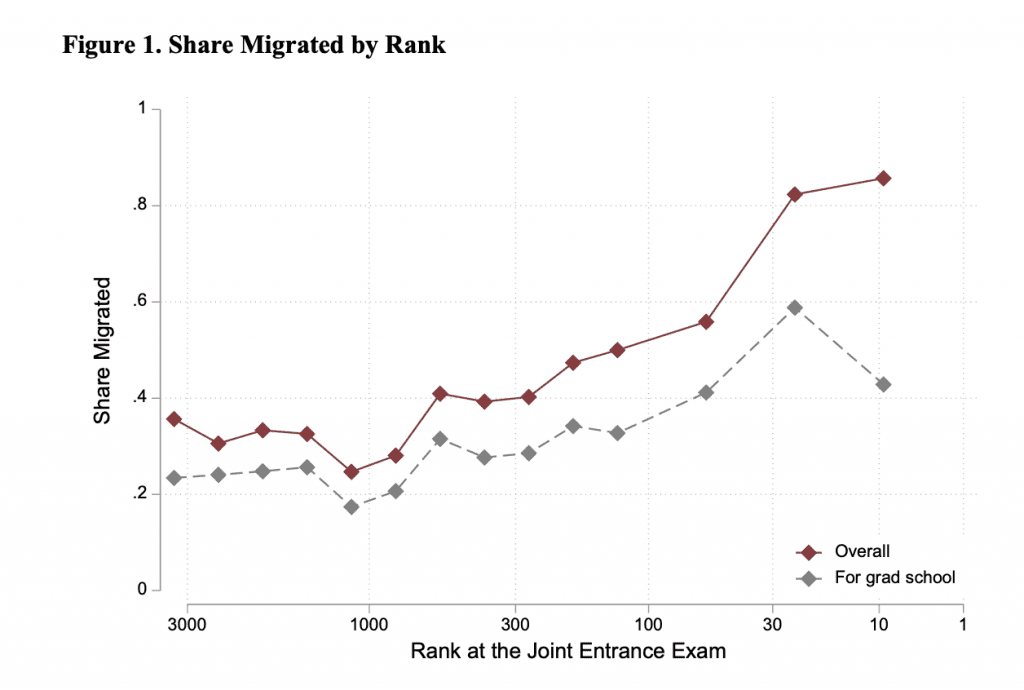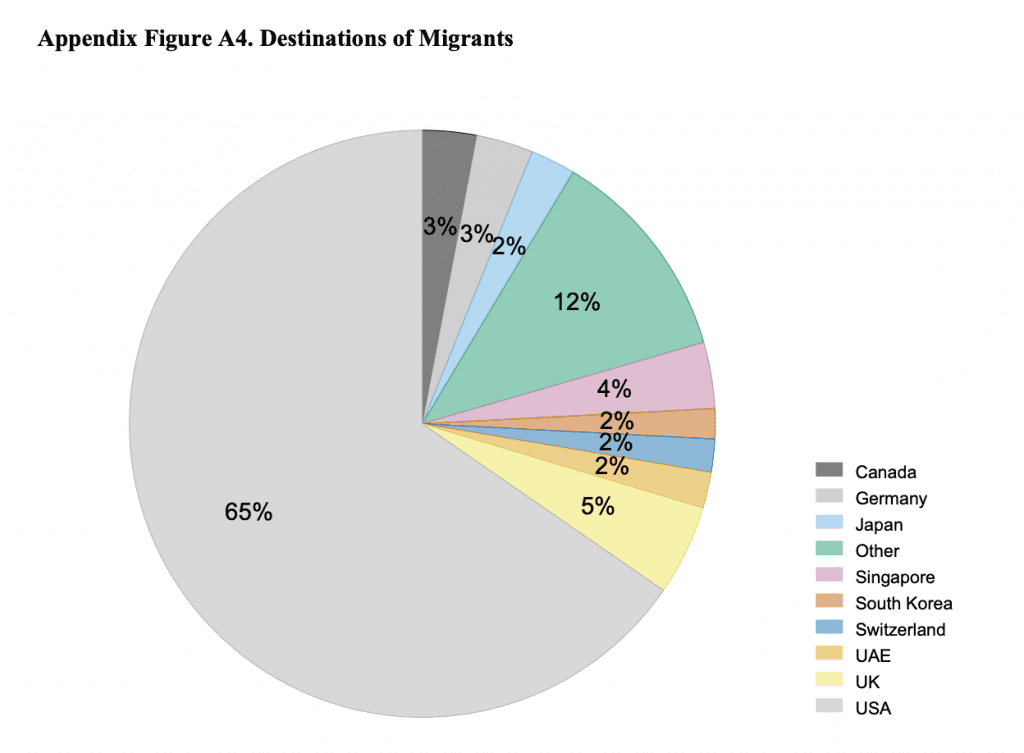The process of brain drain, in which a country’s best talent leaves for foreign shores, is well-known in Indian circles, but a study has now gone ahead and tried to to put a number to the phenomenon.
As many as 36 percent of IIT-JEE top 1000 rankers from 2010 have migrated to other countries, a study by National Bureau of Economic Research has found. This number rose to 62 percent of the top 100 rankers IIT rankers. The study tracked the migration patterns of the top 1000 IIT rankers from the 2010 IIT-JEE exam.

The study found that the better one’s IIT rank, the most likely it was that they’d migrate abroad. While 36% of the top 1000 IIT rankers moved abroad, and 62% for the top 100 rankers moved abroad, the migration number rose further rose to 90% for the top 10 ranks, with 9 of the top 10 IIT rankers from 2010 now working outside Indian shores.

Predictably, the highest proportion of IIT rankers had moved to the USA — as many as 65% of the IIT top rankers now work in the US, followed by 5% in the UK, 3% in Canada and 3% in Germany.

The reason most IIT-JEE top rankers chose to migrate was higher education. As per the study, 83% of all top rankers moved abroad to pursue a Master’s or PhD degree. Only 17% moved abroad directly for work immediately after graduating from IIT. Interestingly, this was reversed for the top 10 rankers — within this set, 5 migrated abroad directly for work, while only 4 moved abroad for higher studies.
The choice of IIT also determined how likely it was that a student moved abroad. Amongst equally-high scoring students, students who attended one of the original 5 IITs — Kanpur, Delhi, Madras, Bombay and Kharagpur –were 4 percentage points more likely to move abroad. The IIT tag also seems to result in more students moving abroad — IT BHU students were 10 percentage points more likely to move abroad after the institute got the IIT tag than when it was simply called IT-BHU.
There are several reasons why IIT students leave for foreign shores. Moving abroad can lead to some lucrative positions that could be hard to find in India — IIT Kharagpur graduate Sundar Pichai is currently the global CEO of Google, while IIT Kanpur grad Arvind Krishna is currently the global CEO of IBM, both positions which would’ve been impossible to attain if they’d chosen to live in India. Moving abroad also gives students access to world-class research, which can also be hard to find in India. But this migration also deprives India of some of its best minds whose education was subsided by taxpayer money. If more IIT top rankers could be coaxed into staying in India, either to do research or build their own companies, their home country might benefit more from the exploits they’re currently pulling off on the world stage.